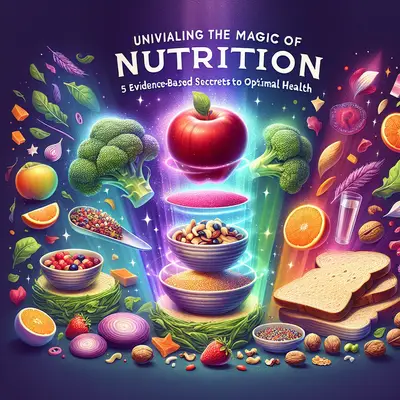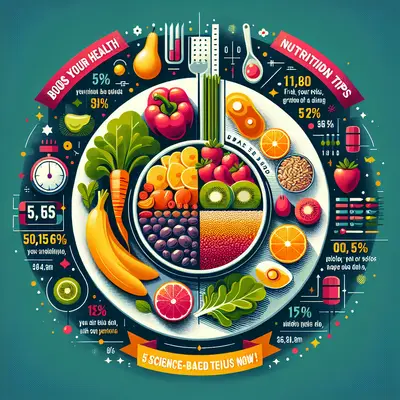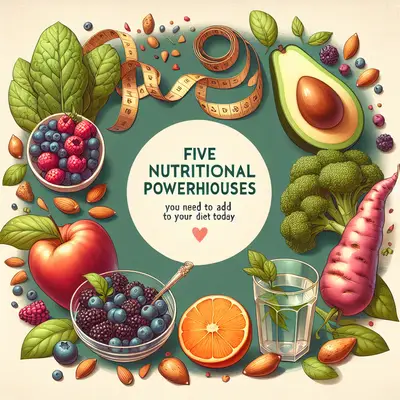Nutrient Timing
Timing your nutrients is not a new concept, but it's gaining traction in the health and fitness world. Research shows that synchronizing your nutrient intake with your body’s natural rhythms can optimize energy levels, enhance recovery, and promote overall wellness[^1^]. Consider segmenting your meals into smaller portions and consuming them at regular intervals throughout the day for maximum nutritional benefits.
Personalized Nutrition
Personalized nutrition is the future. With the rise of genetic testing and digital health tracking, it's now possible to receive customized dietary recommendations based on your unique genetic makeup and lifestyle[^2^]. This approach aims to enhance individual health outcomes, prevent chronic diseases, and even optimize athletic performance.
Plant-Based Protein Revolution
Plant-based proteins aren't just for vegans anymore. A growing number of health-conscious individuals are turning to plant-based proteins for their numerous health benefits, including reduced risk of heart disease and improved gut health[^3^]. Options like lentils, chickpeas, and hemp seeds offer a powerful protein punch, making them a perfect addition to your 2025 diet.
Gut-Health Focus
The health of your gut plays a crucial role in your overall wellness. Probiotics and prebiotics have long been recognized for their gut-health benefits, but the recent trend is leaning towards fermented foods[^4^]. Foods like kimchi, kombucha, and kefir are rich in natural probiotics and can help maintain a healthy gut microbiome.
Sustainable Nutrition
As the impact of climate change becomes more evident, sustainable nutrition is rapidly gaining attention. This involves choosing foods that are not only healthy for us but also have a minimal environmental impact[^5^]. Incorporating locally sourced fruits and vegetables, reducing meat consumption, and minimizing food waste can all contribute to a more sustainable diet.
Conclusion
Embracing these nutritional trends can pave the way for optimal health and well-being in 2025 and beyond. Remember, the journey to wellness is a personal one. It's always crucial to consult with a healthcare professional before making significant changes to your diet or supplement routine. Here's to a healthier, happier you!
[^1^]: Arciero PJ, Ormsbee MJ, Gentile CL, Nindl BC, Brestoff JR, Ruby M. Increased protein intake and meal frequency reduces abdominal fat during energy balance and energy deficit. Obesity (Silver Spring). 2013 Jul;21(7):1357-66. doi: 10.1002/oby.20296. Epub 2013 May 29. PMID: 23736363.
[^2^]: Celis-Morales C, Livingstone KM, Marsaux CF, et al. Effect of personalized nutrition on health-related behaviour change: evidence from the Food4me European randomized controlled trial. Int J Epidemiol. 2017 Apr 1;46(2):578-588. doi: 10.1093/ije/dyw186. PMID: 27524815; PMCID: PMC5837883.
[^3^]: Satija A, Bhupathiraju SN, Rimm EB, Spiegelman D, Chiuve SE, Borgi L, Willett WC, Manson JE, Sun Q, Hu FB. Plant-Based Dietary Patterns and Incidence of Type 2 Diabetes in US Men and Women: Results from Three Prospective Cohort Studies. PLoS Med. 2016 Jun 14;13(6):e1002039. doi: 10.1371/journal.pmed.1002039. PMID: 27299701; PMCID: PMC4907448.
[^4^]: Dimidi E, Cox SR, Rossi M, Whelan K. Fermented Foods: Definitions and Characteristics, Impact on the Gut Microbiota and Effects on Gastrointestinal Health and Disease. Nutrients. 2019 Aug 5;11(8):1806. doi: 10.3390/nu11081806. PMID: 31387262; PMCID: PMC6722808.
[^5^]: Fresán U, Sabaté J. Vegetarian Diets: Planetary Health and Its Alignment with Human Health. Adv Nutr. 2019 Nov 1;10(Suppl_4):S380-S388. doi: 10.1093/advances/nmz019. PMID: 31728498; PMCID: PMC6859312.



